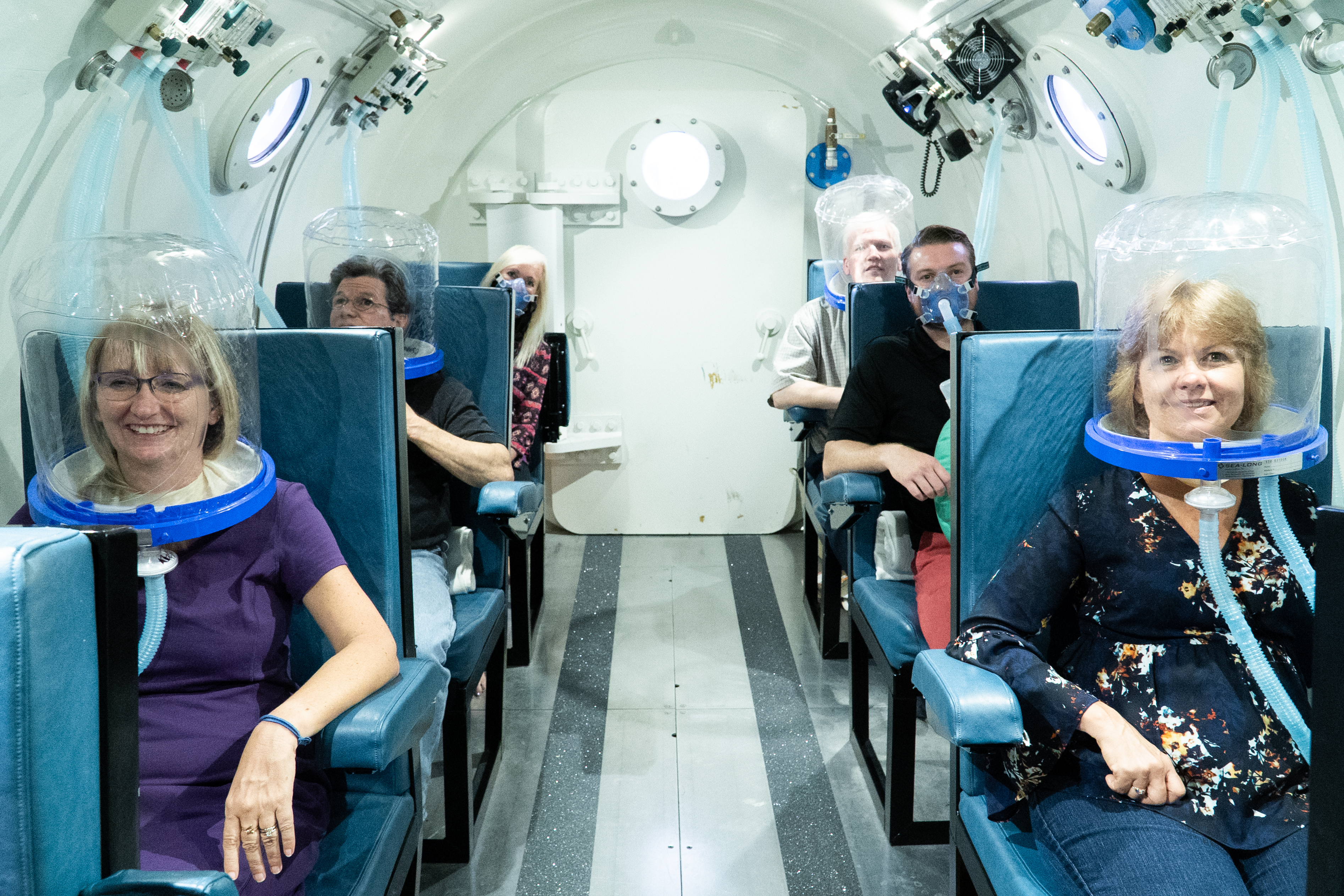
This study examines the effects of hyperoxia, increased atmospheric pressure, and hyperbaric oxygen on cytokine synthesis.
Five healthy volunteers were exposed to 90 min of room air, 100% oxygen, 10.5% oxygen at 2 atm abs, or 100% oxygen at 2 atm abs (HBO2). All subjects were blinded and randomly exposed to each of the 4 conditions. Immediately before entering the chamber, immediately after exposure, and 3 and 24 h later, blood was drawn and stimulated ex vivo with phorbol myristate acetate (PMA) and phytohemagglutinin A (PHA). Since lymphocytes are the primary source of PMA/PHA-induced interferon-gamma (IFN-gamma), these results were expressed as IFN-gamma production per 10(6) lymphocytes. Following the HBO2 exposure, PMA/PHA-stimulated lymphocytes released 51% less IFN-gamma than cells obtained before the exposure. This suppression persisted for 24 h following HBO2 (P < 0.05). Surprisingly, increased atmospheric pressure alone also inhibited IFN-gamma secretion (P < 0.05). Room air and hyperoxia alone had no significant effect upon IFN-gamma release. HBO2’s anti-inflammatory effect may, in part, be due to inhibition of IFN-gamma release.
Read National Center for Biotechnology Information | https://www.ncbi.nlm.nih.gov/
Read more about the study here
